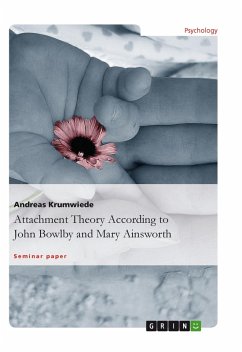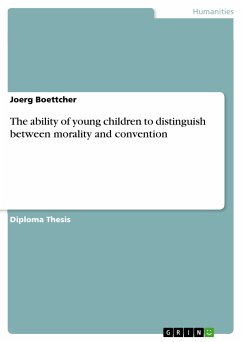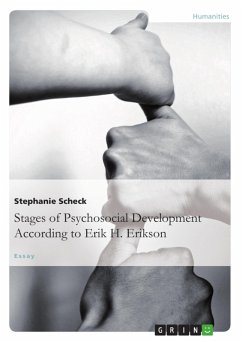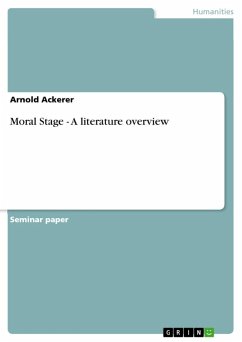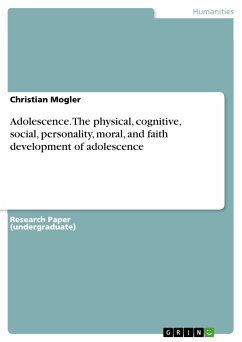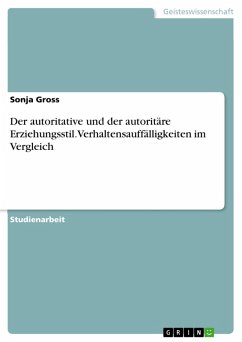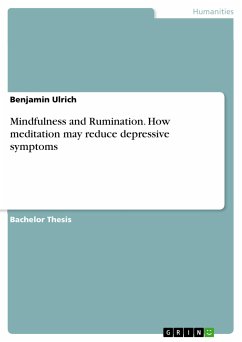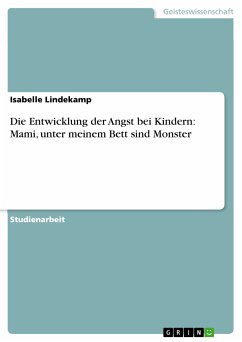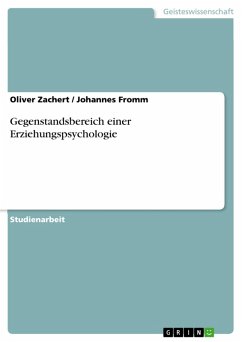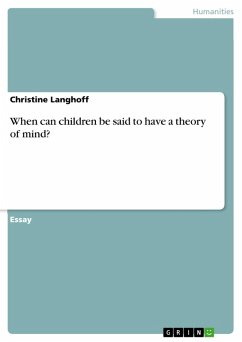
When can children be said to have a theory of mind? (eBook, ePUB)

PAYBACK Punkte
0 °P sammeln!
Essay from the year 2004 in the subject Psychology - Developmental Psychology, grade: 2.1, Oxford Brookes University, language: English, abstract: Theory of mind has been defined as the ability to think about other people's mental states and form theories of how they think. It is part of the so-called social cognition which is the term given to knowledge about people and affairs. The notion of theory of mind became important in Psychology following an experiment by Premack and Woodruff (1978) in which they attempted to test whether chimpanzees have a theory of mind. After the publication of th...
Essay from the year 2004 in the subject Psychology - Developmental Psychology, grade: 2.1, Oxford Brookes University, language: English, abstract: Theory of mind has been defined as the ability to think about other people's mental states and form theories of how they think. It is part of the so-called social cognition which is the term given to knowledge about people and affairs. The notion of theory of mind became important in Psychology following an experiment by Premack and Woodruff (1978) in which they attempted to test whether chimpanzees have a theory of mind. After the publication of this paper it was suggested that children could be tested to see if they had a theory of mind by giving them a false belief task. This is a test to see whether a child will act on a knowingly incorrect belief, or be aware that a second person who is not in possession of a certain piece of information may act incorrectly. Over the last decades many experiments with false belief tasks were conducted in order to test when children develop theory of mind and the results have shown that after about four years of age children realise that another person can have inaccurate belief about the world. However, it has been argued by some researchers that children develop theory of mind earlier and others have stressed that theory of mind cannot be regarded as fully developed in four-year-old children, but rather as a skill that develops for several years after children are successful on typical false belief tasks. I am going to explore some of the studies and arguments dealing with the question of when children can be said to have a theory of mind.
Dieser Download kann aus rechtlichen Gründen nur mit Rechnungsadresse in A, B, BG, CY, CZ, D, DK, EW, E, FIN, F, GR, HR, H, IRL, I, LT, L, LR, M, NL, PL, P, R, S, SLO, SK ausgeliefert werden.




